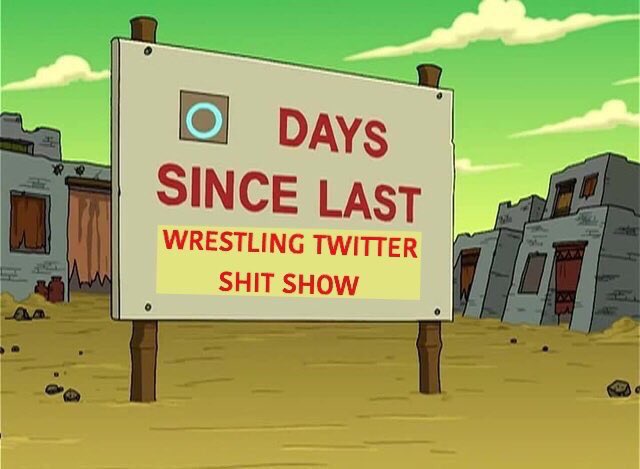Wrestling can be awesome and chances are, if you’re reading this, you agree.
The fusion of narrative and athleticism can be heady, especially when served up with lashings of pageantry, drama and comedy. No matter what anyone says about our wonderful hobby, it’s art. And art comes with fandom.
And fandom is… a mixed bag.
It can lead to dedication that brings the artist close to tears and can inspire future generations to move onwards and upwards, holding said artiste close to their hearts. Look at the sheer amount of superkicks you see every week. Look at the influence Ric Flair has had on hip hop culture. Look at the highest-grossing actor in Hollywood.
On the other hand, is the ugly side of it – removed from wrestling, fandom gave us 50 Shades of Grey. And inside of wrestling, the fandom is traditionally known for being one of the most negative and hypocritical of them all, though thankfully in recent years this has taken a turn towards the better.
That doesn’t stop the madness though – take last week, for example. We wrestling fans went from “a little bit of the bubbly” to “a little bit of the robbery” to “a little bit of assault and battery” (sorry). All of this via a confusing postponement by OWE, leading to the greatest question by a man meant to be in the loop ever:
Amongst the cancellation of shows and police searches, wrestling fans on social media were trying to cancel people.
We in 2019, post #MeToo and John Oliver tearing the WWE’s employment structure to shreds for half an hour, 100% should be calling wrestlers and promoters out for their transgressions, be they immoral or illegal. The situation last week has been documented better than I ever could have here, but the result of the outrage over the weekend was concrete evidence of wrongdoing and the true colours of the individuals involved shining through. It even led to an early retirement which was (and this the only time I’ll say this in the context of pro-wrestling) nice.
The flipside of this is trial by Twitter doesn’t allow for personal growth. Show me a person who claims they’ve never done anything wrong, and I’ll show you a liar – and lying is wrong in itself. Apologies and concrete demonstrations that you’re trying to change can fall in the face of a mob baying for the blood of everyone who has wronged them.
Heck, even I’m guilty of it.

But the thing that curdles in my gut like the combination of milk and lime juice is a simple question – does cancelling people in wrestling ever really work?
The man pictured above is still wheeled out by the Fed for nostalgia pops, despite being caught on camera doing… what he did. Bram was given multiple chances by the promotion now known as Impact Wrestling before they deemed him too much of a liability. And then there’s that Canadian wrestler, the DM screenshots and the case that may or may not be ongoing.
And that’s before I touch on literal murderers. And worse.
Social media has brought us closer to the things and people we adore than ever before, and fandom in general has been enrichened by this – look at the joy of those who have been followed by John Cena in recent days. Unfortunately, the phrase “never meet your heroes” exists for a reason, and that disappointment can manifest itself in a less than ideal way. While the cancellation of those who need to fade away like an Avenger in Infinity War is more than welcome, the stonewalling of those who need room for improvement may not necessarily allow them the room to grow that every human being deserves.

I’m not saying forgive. I’m definitely not saying forget. I’m saying perhaps using our heads as well as our hearts when the worst of the world comes to wrestling’s doorstep might be a good way to keep this from ringing true.
If you liked this article, please follow us on Facebook, Twitter, and Instagram to follow all of our content that goes out daily.
You can find the author of this article on Twitter @JoeKingley. Thanks for reading!

